Canada`s all-items inflation rose 0.1% in September, sending the year-over-year rate down slightly to 3.4% from 3.5% in August. The Bank of Canada’s core measure, which excludes the eight most volatile components and the effects of changes in indirect taxes, rose 0.4% in the month and 1.7% over the year.Although overall prices rose modestly in September, this followed a 0.2% drop in August. This reversal in direction of prices largely reflected a pause in the downward slide in gasoline prices, which rose 0.9% in the month after a 6.6% drop in August.
The gain in core prices largely reflected sizeable seasonal increases in a couple of components. For example, tuition fees are only reflected in the CPI once a year in September with the increase this year of 4% up from 3% a year ago. Similarly clothing and footwear prices generally move higher in September.
With crude oil prices plummeting and refinery capacity restored, gasoline prices are poised to move lower going forward. As well, with growth in Canada likely to be further restrained by continuing tight credit conditions and the U.S. economy falling into recession, growing slack in the system should put downward pressure on all prices that will likely result in third-quarter inflation marking a near-term peak.
The Bank of Canada’s economic forecast released this week shared this view that inflation is poised to trend dramatically lower through next year. Thus, it is the downside risks to growth, rather than upside risks to inflation, that have assumed priority consideration and prompted the central bank to concede that “some further monetary stimulus will likely be required.”
Our forecast assumes that the overnight rate will be cut by further 25 basis points before the end of the year to 2.00%. However, even greater easing may be necessary if there is any intensification of either the factors currently weighing on economic growth.
Dawn Desjardins, Assistant Chief Economist, RBC Economics Research
The gain in core prices largely reflected sizeable seasonal increases in a couple of components. For example, tuition fees are only reflected in the CPI once a year in September with the increase this year of 4% up from 3% a year ago. Similarly clothing and footwear prices generally move higher in September.
With crude oil prices plummeting and refinery capacity restored, gasoline prices are poised to move lower going forward. As well, with growth in Canada likely to be further restrained by continuing tight credit conditions and the U.S. economy falling into recession, growing slack in the system should put downward pressure on all prices that will likely result in third-quarter inflation marking a near-term peak.
The Bank of Canada’s economic forecast released this week shared this view that inflation is poised to trend dramatically lower through next year. Thus, it is the downside risks to growth, rather than upside risks to inflation, that have assumed priority consideration and prompted the central bank to concede that “some further monetary stimulus will likely be required.”
Our forecast assumes that the overnight rate will be cut by further 25 basis points before the end of the year to 2.00%. However, even greater easing may be necessary if there is any intensification of either the factors currently weighing on economic growth.
Dawn Desjardins, Assistant Chief Economist, RBC Economics Research

